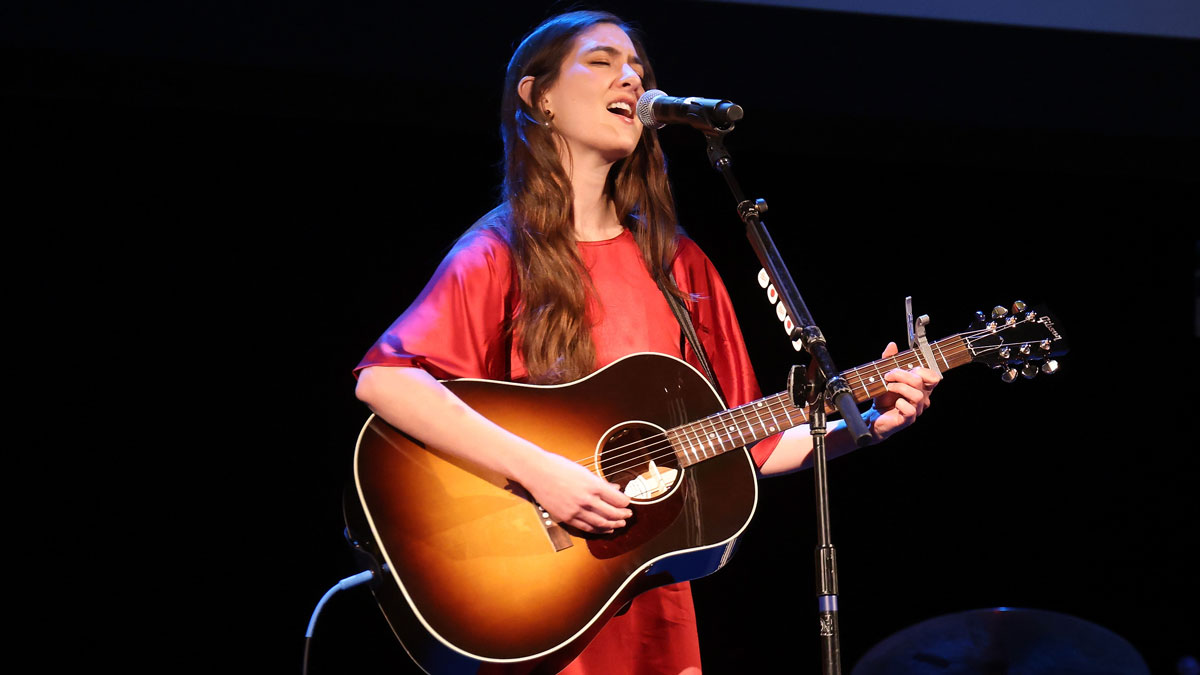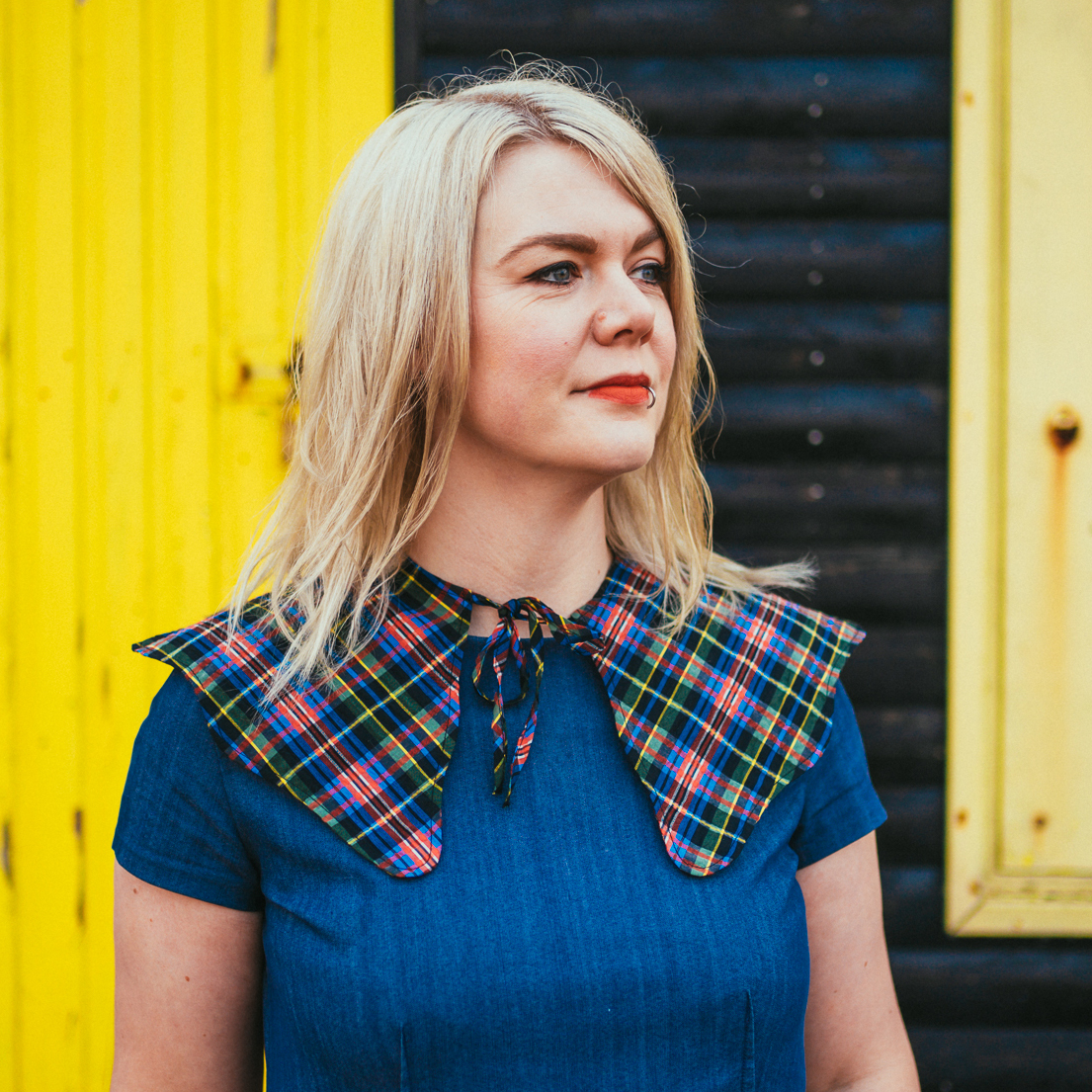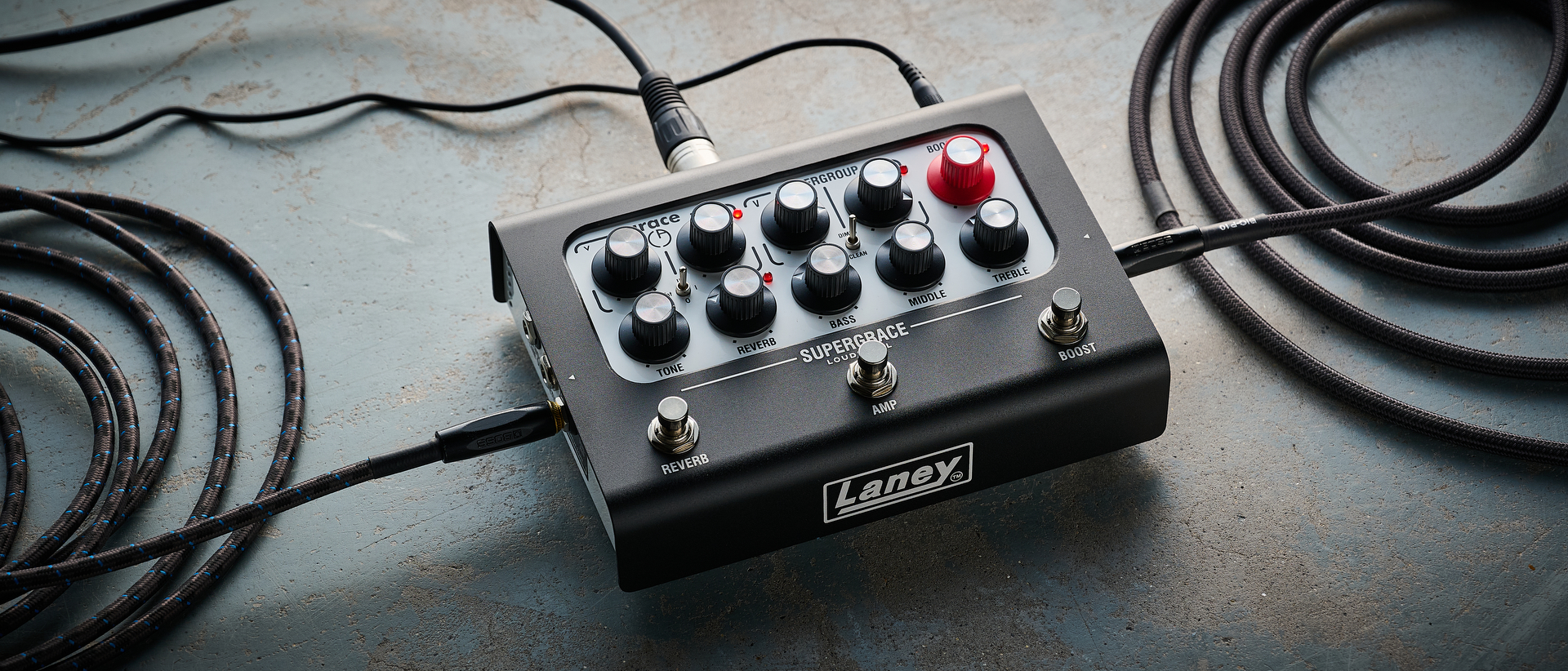Weyes Blood on exploring alternate tunings, building experimental guitars and creating a “weird in-between world” of analog and digital
Hailed as an emerging voice of a generation, Sub Pop-signed songwriter Natalie Mering reflects on her six-string journey so far

All the latest guitar news, interviews, lessons, reviews, deals and more, direct to your inbox!
You are now subscribed
Your newsletter sign-up was successful
Natalie Mering is not afraid to tackle a difficult conversation. At the helm of the wistful folk-pop project Weyes Blood, the songwriter has been praised for her artful commentary on everything from the impending climate emergency to our technologically induced inability to connect.
It feels fitting, then, that last year was a big year for the LA-based musician. Her latest, and equally ambitious and expressive, record And in the Darkness, Hearts a Glow appeared in a raft of best album lists. She was also named SPIN magazine’s Artist of 2022, with the magazine dubbing her “an emerging voice of our generation”.
It’s not a title she carries lightly. Mering is all too aware of the impact of a counterculture revolution – she grew up in Pennslyvania with her hippy parents, who got swept up in the 1970s Born Again Christian movement.
There were some benefits to this indoctrination. Regular church visits propelled Mering into singing madrigals and Renaissance music. Taking the backbone of those ethereal vocals and adding a dash of southern gothic (much like her namesake, a riff on Flannery O’Conner’s book of the same), Weyes Blood was born.
Now, 20 years on since the birth of the project, the multi-instrumentalist reflects on her early adoption of alternate tuning, experimental instrument building and living in a weird, in-between digital and analog world.
You prodigiously picked up the guitar at the age of eight and taught yourself the ropes. What was it that propelled you to learn that instrument?
“My dad, who was a blues rock 'n' roll guy, showed me a couple of basic things then I took it and ran with it. I immediately started changing the tunings of my strings to make it sound like I was more elevated in my playing than I really was. In reality, I was just changing the tuning of the strings to compensate for that.”
All the latest guitar news, interviews, lessons, reviews, deals and more, direct to your inbox!
You began exploring flamenco-style fingerpicking on an acoustic nylon-string guitar using a four-track recorder to flesh out the early compositions that would become Weyes Blood at just 13. When did you know you were onto something?
“There was a really cheap throwaway acoustic that I played when I was really young. But then around 12 or 13, I would sneak and play my dad's electric guitar, a very heavy 15-pound cherry wood Fender Telecaster that he had added some humbuckers to. I'd have the guitar buried under clothes in my bedroom in weird spots. Every once in a while my dad would see it and be like, 'Oh my God, what are you doing to my guitar?'
I started getting into folky stuff because I couldn't join a band. Every time I tried to join a band, they'd be like, 'You should play bass!'
“I eventually went back to acoustic and bought my first guitar, a blue cheesy acoustic guitar called a New York Pro. I started getting into folky stuff because I couldn't join a band. Every time I tried to join a band, they'd be like, 'You should play bass!' So I was like, 'Okay, if I'm going to be my own band, I should play an acoustic guitar so I can do a whole show just me.’ That's why I started Weyes Blood.”
When you finished high school, you relocated to Portland, Oregon to study music at college. But after leaving your studies in the first year, you toured as the bassist of the Portland-based band Jackie-O Motherfucker. How did that experience inform your own visions for your solo work?
“I started playing shows as Weyes Blood as a teenager in Philly and I’d already gained a reputation for being a cool musician. Seven people would come out, you know! [laughs] But in Portland, everybody's like, 'Oh, honey, get in line. Everybody does what you're doing.' It’s such a huge mecca for hipsters and musicians that there's an excess of everything imaginable there. While in Philly, there was a thriving community of musicians who liked each other.”

You’ve also made your own instrument: a six-foot-long slide guitar with a movable bridge in the middle. When did you work on that and do you still have it today?
“It's called a harmonics guitar and the original design was developed by this guy, Glenn Branca, who was an experimental no-wave musician. There was this experimental instrument builder called Bart Hopkin who created a book actually called Experimental Instrument Building, and I was scouring that book for weird stuff and found the harmonic guitar and thought, 'Wow, that's one of my favourite sounds: harmonics on strings,' so it made sense to build it. I did it for my senior project in high school. I used it on [2019 album] Titanic Rising.”
Each subsequent album has been a leap in musical accomplishment and emotional expression. Your latest, And in the Darkness, Hearts Aglow, is the second release in a trilogy alongside Titanic Rising. What are your intentions with the three albums?
“It was realizing when the album cycle for my last record got cut short that I was still in the same headspace and I wasn't ready to make the final record. I always dreamed of doing a really big departure and trying something completely new. When the pandemic started, and all the tours that I had planned got cancelled, it felt like I was in this purgatory sequel and the next record will be the departure record.”
You use a self-dubbed ‘Frankenstein’ recording process going from tape to (digital) track – is that how you’ve always recorded, and what are the benefits of this approach?
“It just warms things up. Tape is really great for drums, bass and stuff with a lot of frequency information. While digital is good for overdubs and vocals and things that might be better, or simpler. Going between the two is a great way to have a weird in-between digital analog world.”
Talk us through your recording setup now – what are your essential pieces of gear?
“I have a Tascam 388, a quarter-inch, eight-track reel-to-reel. That's been really fun and was used on a lot of things, even just for the preamps. On this record, I felt really, really lucky because EastWest [Studios] is full of so many wonderful pieces of gear.
“Joey Waronker, who played on some of the record, had a really light touch. EastWest has a Fairchild 660/670 compressor-limiter which is the famous limiter that The Beatles used and so running his drums through the limiter was a revelation. I was like, 'Oh, there's that sound that we've all been trying to get!'
“With each record, I make a new discovery. As somebody that hasn't been a big collector of gear in a long time because I've been this wandering minstrel, I like to explore other people's setups.”
This year actually marks 20 years since you’ve been performing as Weyes Blood. What are you most proud of as a songwriter so far?
“I love God Turned Me into a Flower, Hearts Aglow, Movies and Andromeda. As far as old stuff, I like that Cardamom Times EP – it's a deeper cut. And on Front Row Seat To Earth, I do really like the vibe of the album and the cohesiveness. Generation Why has a really strong vibe.
“It depends, though because sometimes it changes. I'll play an album live for a while, and then all of a sudden be like, 'Yeah, this is the song.' Time goes by and then another song becomes more exciting. It evolves. I'm still hoping that my best song is still yet to be written. That's my hope.”
- And in the Darkness, Hearts Aglow is out now via Sub Pop Records.
Cheri Amour is a writer, editor and broadcaster intent on amplifying the voices of women and non-binary artists in print, online and on air. During her twenties, she played lead guitar in a touring two-piece, sharing the stage with The Slits and John Peel-approved punks The Nightingales. Formerly Deputy Editor at TGA Magazine, Cheri headed up its Tech section pouring over pedals with everyone to indie icon Debbie Smith (Echobelly/Curve) to multi-instrumentalist Katie Harkin (Sleater Kinney/Waxahatchee/Wye Oak). She's currently working on an upcoming 33 1/3 book on the unassuming influence of South Bronx sister troupe ESG, out in Spring 2023.

